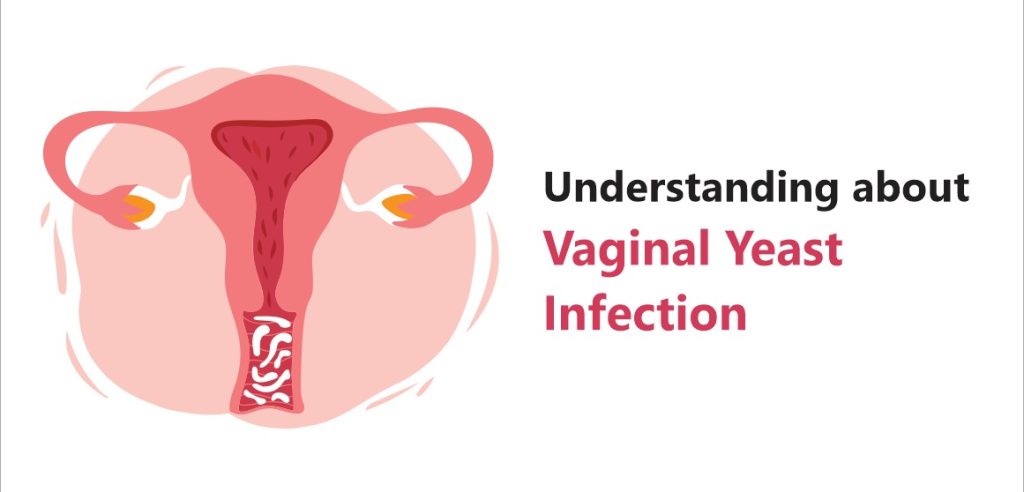How Yeast Infections Can Stall Weight Loss
If you are suffering from chronic yeast infections, you may not realize that it can contribute to weight gain or difficulty with losing weight. Learn how to treat candida overgrowth and get weight loss back on track.

If you’ve ever had a yeast infection you know the treatment drill. Go to your doctor or the pharmacy, get antifungals, and make it go away, immediately!
Usually, a topical cream or sometimes a prescription is given for severe cases of yeast infections, which never really gets rid of the real issue this kind of approach can sometimes make matters worse in the long run.
Ever notice that after a month or two after having a yeast infection, you experience another one?! Not exactly fun times. Unfortunately in our society today chronic yeast and fungus issues are all too common, with women predominately being affected.
Our modern way of life is unsupportive of health, contributing to yeast overgrowth, weak immune systems, and indirect weight gain. It’s an underlying cause for many common illnesses, and without being properly addressed they will keep coming back, the next more aggressive than the last.

What Is A Yeast Infection?
You may hear people define yeast overgrowth as Candida, a yeast that lives mostly in our intestines and vagina for women. When the body is healthy, normal levels of yeast do not cause problems, but when our immune system is weakened, antibiotics are routinely taken, and an unhealthy high-sugar diet is in place, yeast begins to multiply and take over leading to yeast infections. That is why diet is also a crucial part of treating chronic candida.
Your intestines should contain a ratio of approximately 80% beneficial bacteria to 20% neutral and pathogenic, however, this can be depleted fairly easily with our modern lifestyles.
Yeast cells are constantly reproducing and dying, which could explain why sometimes you feel great during the month and other times you don’t. These dying cells produce toxins that are being released into your bloodstream to get rid of, but if the liver isn’t functioning optimally or other detoxification systems are impaired, such as the colon to excrete these toxins, you feel weak, and sick and develop other symptoms known as die off. Common examples are fatigue, nausea, headaches, bloating, gas, constipation, chills, fever, breakouts, and even intensity of yeast infection symptoms.
Could Chronic Yeast Infections Be The Underlying Cause of Your Resistance to Weight Loss?
If you are trying to lose weight and eating less is not working, there is typically a greater issue happening elsewhere in the body. In these cases, resistance to weight loss is a symptom of a greater imbalance.
Most clients I see with yeast infections did not seek me out for this reason. Most of them are seeking help with either skin conditions or weight loss. However, yeast infections are a red flag that can be very telling to someone’s state of health and how to begin to address the root problem.
Yeast most definitely is one of the possibilities that could be contributing to weight gain in some, in addition to preventing one from losing weight, no matter how little they eat or how much exercise is done.
Other common symptoms that may be present when attempting to lose weight with yeast overgrowth, include:
- Fatigue and exhaustion
- Brain fog/ lack of concentration
- Cravings for sugar and carbs
- Immunity crash (colds, sickness…)
- Digestive distress: Intestinal gas, bloating, or cramping (IBS)
- Allergy-type symptoms in cold damp weather or moldy places
- PMS
- Loss of libido
- Acne
- Bad Breath/ Body odor
- Nail fungus
- “Liver spots” on the skin
These are just a few symptoms that some may present when yeast overgrowth is present. There are many others, so keep in mind that any symptom could tie back to a yeast problem being at the root of it.
Ways That Chronic Yeast Infections Can Develop:
Opportunistic bacteria and yeast don’t just take over for no reason. There’s usually a cause. I label these in three main categories. Everything from our stressful lifestyle, to our diets and drugs has an impact on our gut flora.
- Diet– A diet high in sugar, starch, and processed foods is fuel for yeast to thrive and multiply. This study found that biofilms of Candida are made of 32% glucose. It was found that Candida yeast needs sugar not just to reproduce, but also to create protection in the form of a biofilm that keeps the immune system from attacking it.
- Lifestyle– A stressful lifestyle can lower immunity and therefore lead to a decrease in beneficial gut flora. 70-80% of immunity is located in the gut. Keeping bacteria in check is crucial to keeping symptoms and sickness at bay. Other factors that can lead to yeast overgrowth are exposure to chlorinated water, alcohol abuse, and long-term birth control use, digestive distress coming from a lack of stomach acid (hydrochloric acid) contributing to undigested food and leading to symptoms such as constipation and diarrhea.
- Drugs– Specifically antibiotics are a huge factor in candida and yeast overgrowth. They kill off any type of bacteria including the good kind which then allows for the harmful bacteria to populate. Alcohol abuse can also alter gut flora and lead to yeast overgrowth.
How Chronic Yeast Infections Affect Weight Loss
If your diet consists of starchy carbohydrates and sugars, then it’s easier to assume that there may be a yeast imbalance present and that the sugar from the diet is encouraging the growth of harmful yeast contributing to actual fat and weight gain.
This is why cravings for carbs and sugar are a difficult thing to stop. It’s more than just willpower, it’s a physiological effect that many times goes beyond our thoughts and ability to say no. The yeast survives off glucose, so those cravings may be an influx of yeast calling out for fuel. The more cravings we have, the more we give in, the easier it is to gain weight and the more difficult it is to lose it.
Yeast overgrowth can also alert the immune system to work harder to protect it from the toxins that yeast gives off. Over time, this ongoing and chronic stress can raise cortisol levels as it begins to impact adrenal health.
Chronic ongoing stress does not allow weight loss to happen as the body prioritizes stress over anything else in the body. This is survival mode. As long as there is yeast present producing more toxins in the body, stress is heightened, making weight loss extremely difficult if not impossible for some.
How To Beat Chronic Yeast Infections and Weight Concerns For Good
Much of the information regarding yeast and candida that include diet and supplements often leaves out a very crucial step. There is another side of the story that rarely gets talked about that can make a difference in an effective treatment plan: Biofilms.
How Biofilms Encourage Yeast Infection Relapse
Lack of understanding about biofilms may even be the reason for the high number of relapses and unsuccessful attempts many experiences, contributing to the frustration in getting rid of yeast infections for good.
Yeast cells have security around them called biofilms. These act as protective shields around yeast and other microorganisms. This makes it even more challenging to attack the yeast as the antifungals that are taken by most cannot get through this matrix of a biofilm, whether it be drugs or herbal medicine. This is how yeast hides and protects itself from being destroyed.
When treating chronic yeast infections, it’s important to take something that will address the protective biofilms.
How To Treat Chronic Yeast Infections:
The bottom line, addressing yeast overgrowth requires a comprehensive approach. I suggest making adjustments to the following areas for 4-8 weeks until the candida has been killed off:
- Diet: Eliminate all natural, added sugars, and food high in starch and carbohydrates. This includes fruit, starchy vegetables, all grains and dairy (except butter), and all yeast-containing foods.
- Supplements: It’s imperative to address biofilms as well as the yeast itself. A full-spectrum antimicrobial that may include herbs such as black walnut and berberine can be very effective, as well as a biofilm disrupter. This is either enzyme based or a specific amino acid and strong antioxidant known as N- Acetylcysteine. Studies have shown that N- Acetylcysteine has antibacterial properties that work as a biofilm disrupter as well. It’s also a good idea to include a quality probiotic daily.
- De-stress: A crucial part in any healing journey, and typically overlooked. When the body is being bombarded with yeast overgrowth, inflammation is present causing constant internal stress. Focusing on getting enough sleep/rest, mentally stimulating exercise such as meditation, and detoxification support via a good sweat session, Epsom salt bath, or even a lymphatic massage can all help rid toxins and yeast from the body.
Much like the conventional approach to address yeast issues, addressing weight loss is also seen with a very limited view. Working with an integrative practitioner is best to ensure you’re being monitored and address all your concerns holistically.




